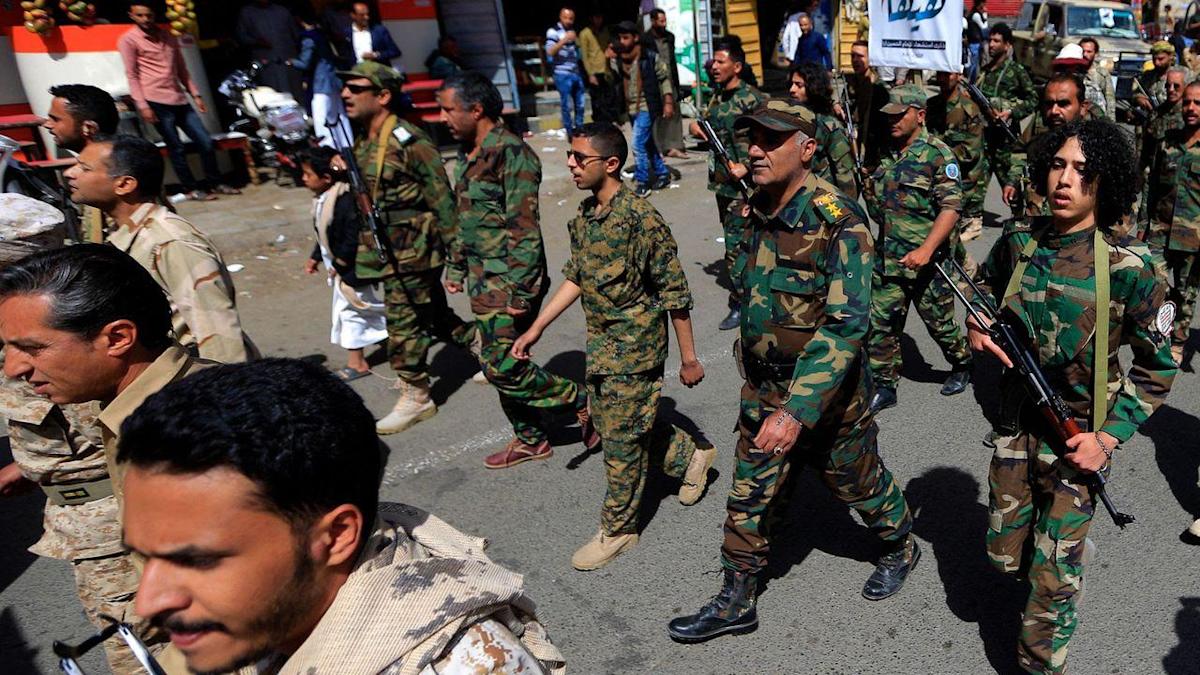
ABU DHABI, UAE — Weeks of intense diplomatic efforts led by the UN and U.S. have yielded a truce in Yemen.
Why it matters: The immediate result of the truce has been the easing of a fuel crisis and greater freedom of movement, which will likely bring relief to Yemenis struggling with one of the world’s worst humanitarian crises.
Get market news worthy of your time with Axios Markets. Subscribe for free.
The backstory: A Saudi-led coalition has been fighting the Iran-backed Houthis since March 2015, after the Houthis overthrew the government in Sanaa.
-
According to the UN, around 24 million Yemenis are in need of humanitarian assistance, including almost 13 million children. More than 150,000 people, including fighters and civilians, have been killed as a result of the conflict.
-
Yemenis greeted news of a two-month truce with both hope and caution. A previous truce in 2016 and a partial halt to the fighting in 2018 both ultimately collapsed.
State of play: The Saudi-led coalition had in recent months halted Houthi advances in the key region of Marib.
-
The Houthis responded by stepping up attacks on Saudi Arabia and the UAE, including on energy infrastructure.
-
After those attacks, the U.S. pledged to help neutralize the Houthi threat to its Gulf partners.
Driving the news: The two-month halt to all fighting in Yemen went into effect late on Saturday, the first day of the holy month of Ramadan for most of the Muslim world.
-
During the two-month truce, the Saudi-led coalition will allow vessels carrying fuel into the key port of Hodeida and let flights from the Yemeni capital to Egypt and Jordan resume.
-
Both Hodeida and Sanaa are held by the Houthi rebels. Hodeida handles the majority of Yemen’s commercial and humanitarian imports.
Yes, but: Yemeni Foreign Minister Ahmed Awad bin Mubarak claimed on Tuesday that the Houthis were already breaching the truce with “military deployments, mobilization of troops and vehicles, artillery and drone strikes.” Houthi media outlets also accused the pro-government forces of “breaches.”
-
Consultations held between Yemeni political factions in Saudi Arabia’s capital Riyadh have been underway and will continue until Thursday, but the Houthis have declined to take part.
-
The UN hopes the meetings might still result in greater regional support for Yemen, including the restoration of basic services and the creation of economic opportunities.
What to watch: If direct talks between the government and the rebels do take place as a result of the truce, it will be a huge step toward ending the war.
Worth noting: Crude oil futures dipped Monday morning in Asian trade on the news of the truce, which could lower the risk to Saudi supply.
More from Axios: Sign up to get the latest market trends with Axios Markets. Subscribe for free




